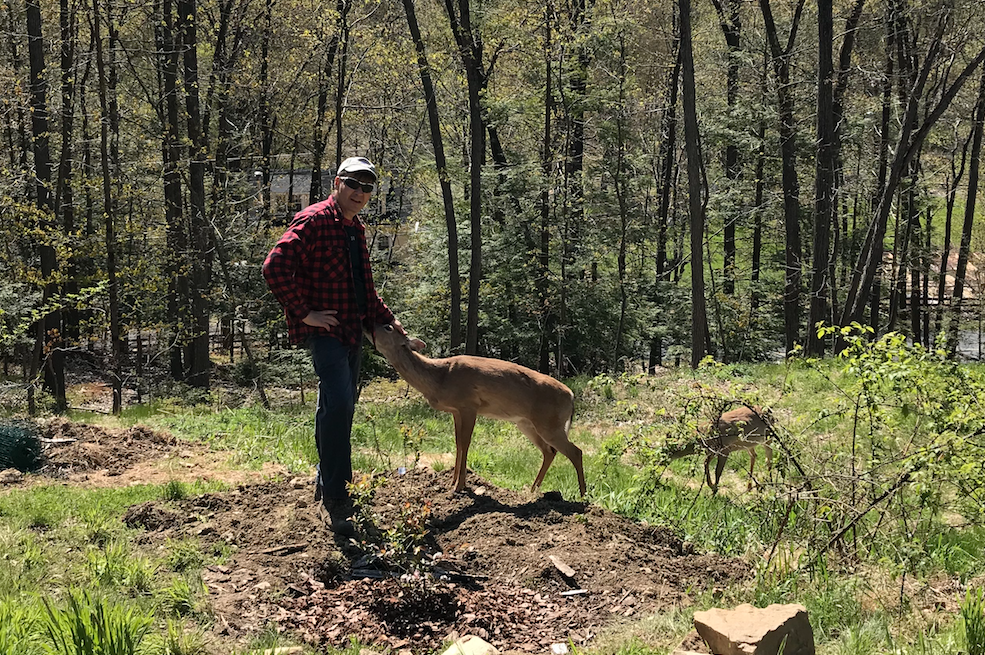Lots of Japanese beetles are happily frolicking on my roses this year, making a bit of a mess along the way, and some other pest, probably a moth caterpillar, has been laying eggs in our pussy willow and mauling its leaves.
Whether Climate Change, Covid-19, the garden pests, or so many other things – we tend to think that nature is out of balance. But the more consequential conclusion is that we are out of sync with nature. We look to the outside for the culprit, a symptom based approach with little interest for the underlying cause. Having become our planet’s biggest monoculture with the greatest impact on shaping the environment, the responsibility squarely falls on each one of us to make amends in rebalancing our relationship with it.
Without a true understanding of the myriad elements that make up an ecosystem, each one of them contributing something that feeds back into the regenerative cycle, we tend to interfere in a reactionary way without being able to anticipate the consequences. Used to the idea of getting rid of bugs with a spray can, we are learning the hard way that Monsanto has been making a worldwide mess of the environment and our health with their glyphosate that’s now showing up everywhere, including inside our bodies.
So, I won’t add insult to injury, and add more poison to a fragile planet that needs healing. Maybe the bats that are living in our cliff can use this new food source of beetles and pests, or maybe the pests will promote the multiplication of the bats, which is a good thing. Whichever way around it is, nature is far wiser than I am, and I will leave it to the bats and birds to eat the excess bugs in my garden, instead of pulling out the spray. A wonderful documentary about the 7-year rehabilitation of an abandoned farm into a sustainable and thriving orchard, The Biggest Little Farm, shows how intricate a balanced ecosystem truly is, how many elements contribute to a thriving environment, and that we can regenerate and rebuild by making an effort to reconnect with nature in a deeper way.






